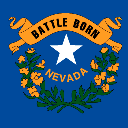
NEVADA KERR
Lust For The Free Life
David Bowie often writes about freedom in his songs in an attempt to make himself at home in a world that frequently obstructs freedom and free will. He has played the roles of the freethinker, the prisoner of love, a devotee of the free world, and a madman who refuses to be set free.
In the song 'Cygnet Committee' a ubiquitous WE threatens to force "freedom" upon us: "We can force you to be free." He goes on to warn: "I once read a book in which the lovers were slain for they knew not the words of the Free States' refrain." Here freedom smells more like enforced subjection all for the so-called "Power of the Good."
In "Dancing With The Big Boys" Bowie describes the loneliness that exists in a Free Society: "One wrong word and you're out of synch."
In the Rose/Williams tune "Fill Your Heart" Bowie sings: "Love cleans the mind and makes it free." Here love is a force that indulges autonomy and self-will, the kind of free will that can help you know it all.
The 'Hallo Spaceboy' from the "Outside" album has been released but his custody still calls. Bowie asks him: "Don't you wanna be free?" The narrator confesses: "I wanna be free."
"No one else is free" in the song "I Would Be Your Slave." The protagonist is willing to give up his freedom and abandon his autonomy to his lord and master. Of course, he wants something in return. Freedom is not "free of cost." Freedom is contingent upon the action of the will of one mind over the will of another. Here we see the classic battle between God and his minions.
Bowie warns that there are "no more free steps to Heaven" in the song "It's No Game."
In the song "Let Me Sleep Beside You" Bowie sings: "Child, you're a woman now, your heart and soul are free." Yet he also tells her to "lock away her childhood and throw away the key." It seems that our lovely woman-child is subject to the control and domination of her suitor.
In "Lightning Frightening" Bowie divulges a paradox: "I'll give you back my right to be free." He implies that the right to be free is like any other possession, like his house or his farm. The protagonist insinuates that he can take back that which was taken from him. A very powerful act of self-will indeed, not unlike simply "slapping a baby and making him free."
In the song "Sweet Thing," David Bowie sings "I'm glad that you're older than me; it makes me feel important and free." But if hope is a cheap thing, what is the cost of freedom for this sweet thing?
In the song "Take My Tip," David admits that he is "Gonna make like a shark to be free."
David likes the free world in "Tumble and Twirl" despite all of it's inherent contradictions.
In "Up The Hill Backwards" he sings: "There's a vacuum created by the arrival of freedom and the possibilities it seems to offer." It seems freedom in and of itself is not enough to fill the void in a regressive world. Nothing is free of charge especially freedom. That becomes all too apparent in "We Are Hungry Men." Bowie confesses "We are not your friends." Friendship and freedom are inextricably entwined. You can not have one without the other. The "hungry man" is only interested in himself. One can not expect liberation from a lunatic messiah who forms his own society. In the end the changing isn't free. Ultimately, all exchanges and interchanges (political, social, affectional) have their price. But sometimes we all lust for the free life!
Nevada Kerr
11th February 2003.
BW MB Profile...
CLICK HERE
TO CLOSE WINDOW

